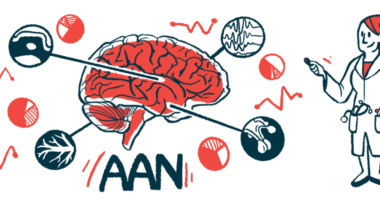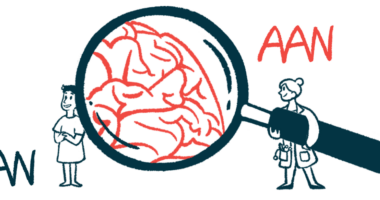Phase 1 Trials of Bayer’s Cell and Gene Therapies Enrolling Patients

The first patient has been dosed in a still-recruiting Phase 1 clinical trial testing DA01, an investigational cell therapy for Parkinson’s disease.
A separate Phase 1 trial of a potential gene therapy for Parkinson’s is also recruiting eligible patients in the U.S., according to a press release from Bayer.
Parkinson’s is caused by the death of dopamine-producing neurons in the brain. DA01 is made up of dopamine-producing neurons (nerve cells) derived from human embryonic stem cells. These cells, found in embryos, are able to grow into any type of human cell. The goal of this gene therapy is to repopulate a patient’s brain with these neurons, potentially aiding motor function and easing other disease symptoms.
DA01 is being evaluated for safety and tolerability in a Phase 1 clinical trial (NCT04802733) that is enrolling up to 10 adults, ages 60 to 76. Those eligible have been living with Parkinson’s for five to 15 years, and have dyskinesia or “off” period while using levodopa, a standard treatment. All participants will receive DA01, surgically transplanted into the putamen (a part of the brain heavily affected in Parkinson’s) while under general anesthesia.
The safety and tolerability of DA01 as a cell therapy will be assessed at one-year post-transplant, and again through two years after the treatment. Researchers will also assess the extent to which transplanted cells survive, and the treatment’s effect on motor symptoms.
The trial is currently enrolling at Weill Cornell Medical College in New York, with plans to also recruit participants at the University Health Network, in Toronto, Canada.
It is sponsored by BlueRock Therapeutics, which developed DA01. BlueRock was acquired by Bayer in 2019.
Through its wholly owned subsidiary Asklepios BioPharmaceutical (AskBio), Bayer is also developing an investigational gene therapy for Parkinson’s.
The gene therapy aims to use a modified viral vector to deliver the GDNF gene to specific regions of the brain. This gene codes for a protein also called GDNF (glial cell line-derived neurotrophic factor), which supports the growth and survival of the dopamine-producing neurons that are lost in Parkinson’s.
An ongoing Phase 1 clinical trial (NCT04167540) aims to test the therapy’s safety and preliminary efficacy in 12 adults, ages 35 to 75, with either a recent or long-standing Parkinson’s diagnosis. The trial is actively recruiting participants at sites in California and Ohio. According to Bayer, 10 patients have been enrolled since the study started in August 2020.
Safety and tolerability will be assessed through reported side effects over five years, while signs of early efficacy will be evaluated through changes in motor and non-motor (sleep, fatigue, mood, etc.) symptoms at 18 months post-treatment.
“The potential of BlueRock and AskBio’s clinical candidates to treat Parkinson’s disease and truly help patients with their high unmet medical need could be immense,” said Wolfram Carius, head of cell and gene therapy at Bayer.
“We are still in early phases of clinical trials, but passionately committed to advancing breakthrough science to improve the lives of patients who have been waiting for way too long for innovative treatments.”






